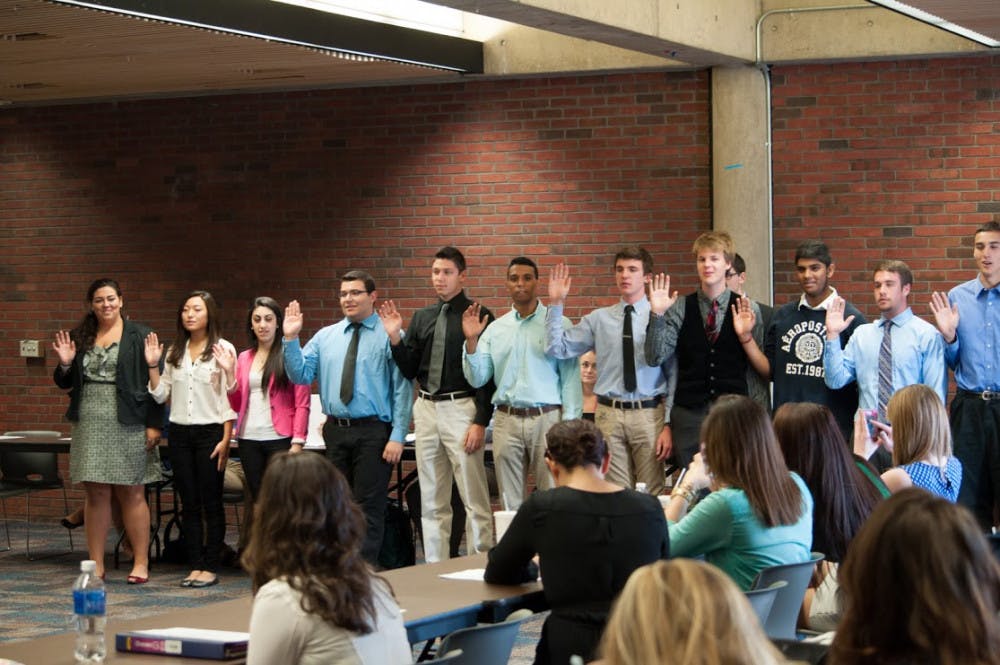Students have seen the fliers, deleted the email blasts and been invited to the Facebook events. But it’s still rare to find students who actually know why they are voting for a specific candidate in the Student Government elections, if they even vote at all.
This past fall, 1,200 of the 6,700 students at the College voted in Student Government elections, 606 less students than last spring’s turnout of 1,806, according to alternate student trustee Ryan Boyne.

“I think year to year we see a change in who votes for what,” said Student Government president Tyler Liberty, who explained that they changed this year’s elections to add more freshman spots. “I think that definitely contributed (to the decrease) in that upperclassmen actually draw a lot more votes than you’d think because they have their friends vote for them and people that they’ve made connections with over the past two to four years, who vote more than freshmen who just got here.”
A survey conducted of 152 students at the College showed that 63 percent of students vote in elections and 37 percent of students don’t. When asked why they didn’t vote in elections, several responses suggested that they didn’t know where to vote or why they should vote for the candidates.
“I think on our end, we could’ve done a better job publicizing it,” Liberty said. “I think there’s always room for improvement in how you advertise elections.”
Of the people who answered yes to voting in the survey, 40 percent of students claimed to vote based on which candidate they thought is best based on their ideas. However, a close 37 percent admitted that they voted directly for their friends.
During election season, it’s often found that the academic and dormitory halls are bombarded with fliers advertising a candidate’s name and picture. However, there is no information given on why students should vote for these candidates besides the fact that their name rhymes with something catchy and their picture is cute or funny.
“I don’t vote because I don’t feel adequately informed about the candidates, and I don’t want to make an uneducated vote,” one response from the survey read.
Other responses dictated that several students vote based on name recognition only, meaning that candidates were successful in garnering votes because they campaigned well, most likely by handing out lollipops or stickers with their names on it. However, this campaigning still doesn’t give any information as to why the candidates will be suitable for the job — it merely provides a tasty snack in between walks to class.
“I think in the past we had a candidate forum,” Liberty said. “But the only people who would go were people in Student Government, so I think it’s a toss-up between, ‘Hey I want know who I’m voting for but I don’t want take time out of my day to listen.’”
There is, however, an undercover way to get information about candidates. Their bios can be viewed by clicking on the candidates’ names on the ballot — but this is only offered during the actual day of elections.
“I think that comes back to us,” Liberty said on the feature of viewing bios on the ballot that is highly unknown to the student body. “It’s tough for us because for people who have been in Student Government for three or four years now, we sort of know everything and are used to it.”
As students are not well-informed of election details or candidate ideals, the results of elections often stem from the amount of organizations a candidate is in, as they are able to receive votes from friends.
However, Liberty explained that although a person may be acquiring several votes from friends, it is still imperative that they get outside votes in order to win against other candidates.
“I think it is important (to vote),” Liberty said. “I think that you’re electing the people who want to represent you. We’re lucky that on this campus, we have a lot more say in the way that things run than most student governments do across the nation, and we’re able to do that with a strong general body.”







